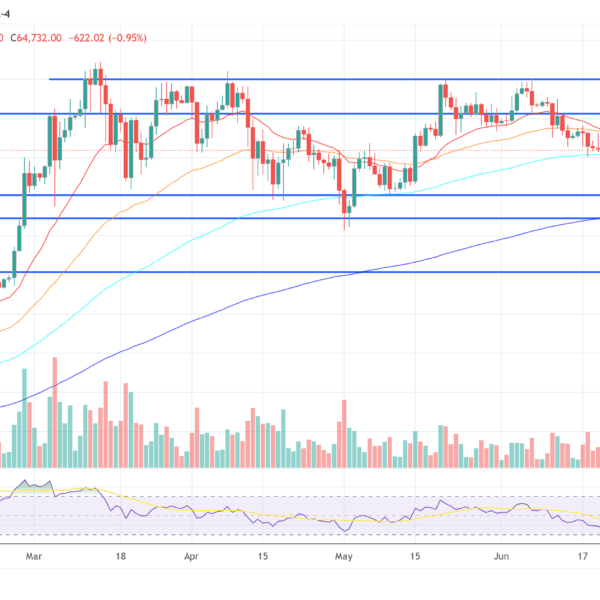
EU trade ministers agreed Monday that U.S. President Donald Trump’s announcement of 30% tariffs on the European Union was “absolutely unacceptable,” and they are studying a new set of countermeasures to respond to the move.
The ministers met Monday in Brussels following Trump’s surprise announcement over the weekend of such hefty tariffs, which could have repercussions for governments, companies and consumers on both sides of the Atlantic. The EU is America’s biggest business partner and the world’s largest trading bloc.
Maroš Šefčovič, the EU’s trade representative in its talks with the U.S., said after the meeting that it was “very obvious from the discussions today, the 30% is absolutely unacceptable.”
He said that the commission was sharing proposals with the 27 member countries “for the second list of goods accounting of some 72 billion euros ($84 billion) worth of U.S imports. They will now have a chance to discuss it. This does not exhaust our toolbox and every instrument remains on the table.”
Lars Løkke Rasmussen, foreign minister of Denmark, which recently assumed the presidency of the EU, said the ministers vowed to work together in negotiating a trade deal with Washington or agreeing on countermeasures.
“The EU remains ready to react and that includes robust and proportionate countermeasures if required and there was a strong, feeling in the room of unity,” Rasmussen told reporters after the meeting.
The tariffs, also announced for Mexico, are set to start on Aug. 1 and could make everything from French cheese and Italian leather goods to German electronics and Spanish pharmaceuticals more expensive in the U.S., and destabilize economies from Portugal to Norway.
Meanwhile, Brussels decided to suspend retaliatory tariffs on U.S. goods scheduled to take effect Monday in hopes of reaching a trade deal with the Trump administration by the end of the month.
The “countermeasures” by the EU, which negotiates trade deals on behalf of its 27 member countries, will be delayed until Aug. 1. Trump’s letter shows “that we have until the first of August” to negotiate, European Commission President Ursula von der Leyen told reporters in Brussels on Sunday.
Maroš Šefčovič, the EU’s trade representative in its talks with the U.S., said negotiations would continue Monday.
“I’m absolutely 100% sure that a negotiated solution is much better than the tension which we might have after the 1st of August,” he told reporters in Brussels on Monday. But he added that “we must be prepared for all outcomes.”
“I cannot imagine walking away without genuine effort. Having said that, the current uncertainty caused by unjustified tariffs cannot persist indefinitely and therefore we must prepare for all outcomes, including, if necessary, well-considered proportionate countermeasures to restore the balance in our transit static relationship.”
The letters to the EU and Mexico come in the midst of an on-and-off Trump threat to impose tariffs on countries and right an imbalance in trade.
Trump imposed tariffs in April on dozens of countries, before pausing them for 90 days to negotiate individual deals. As the three-month grace period ended this week, he began sending tariff letters to leaders, but again has pushed back the implementation day for what he says will be just a few more weeks.
If he moves forward with the tariffs, it could have ramifications for nearly every aspect of the global economy. The American Chamber of Commerce in the European Union, an influential industry group representing major American corporations in Europe, said the tariffs could “generate damaging ripple effects across all sectors of the EU and US economies” and praised the EU’s delay of countermeasures.
In the wake of the new tariffs, European leaders largely closed ranks, calling for unity but also a steady hand to not provoke further acrimony.
Just last week, Europe was cautiously optimistic.
Officials told reporters on Friday they weren’t expecting a letter like the one sent Saturday and that a trade deal was to be inked in “the coming days.” For months, the EU has broadcast that it has strong retaliatory measures ready if talks fail.
Reeling from successive rebukes from Washington, Šefčovič said Monday the EU is “doubling down on efforts to open new markets” and pointed to a new economic agreement with Indonesia as one.
The EU top brass will visit Beijing fora summit later this month while courting other Pacific nations like South Korea, Japan, Vietnam, Singapore, the Philippines, and Indonesia, whose prime minister visited Brussels over the weekend to sign a new economic partnership with the EU. It also has mega-deals in the works with Mexico and a trading bloc of South American nations known as Mercosur, and Šefčovič will meet with his counterpart from the United Arab Emirates next week.
While meeting with Indonesia’s president on Sunday, Von der Leyen said that “when economic uncertainty meets geopolitical volatility, partners like us must come closer together.”














